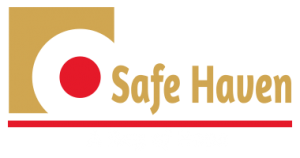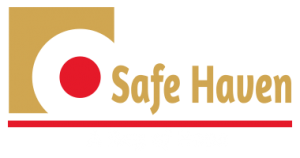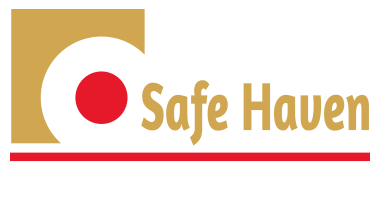About Safe Haven – A Ray of Hope
Recruitment and Selection Policy
- Purpose
The purpose of this policy is to provide a sound framework for the recruitment and selection of new staff based upon the principles outlined below. - Scope
This policy covers all activities that form part of the recruitment and selection process. It is applicable to all staff recruitment except casual staff, freelance contractors and volunteers. - Core principles
- The charity will seek to recruit the best candidate for the job based on merit. The recruitment and selection process should ensure the identification of the person best suited to the job and to the charity.
- The charity will ensure that the recruitment and selection of staff is conducted in a professional, timely and responsive manner and in compliance with current employment legislation.
- The charity will treat all candidates fairly, equitably and efficiently, with respect and courtesy, aiming to ensure that the candidate’s experience is positive, irrespective of the outcome.
- The charity will ensure that its recruitment and selection process is cost effective.
- All documentation relating to applicants will be treated confidentially in accordance with Safe Haven’s Privacy Policy.
- The safeguarding of children is paramount to Safe Haven. The charity has developed recruitment practices to ensure staff and volunteers are suitable for working with children.
- Recruitment and selection Procedure
4.1 Preparation
- The recruitment process should not commence until a full evaluation of the need for the role has been completed.
- Formal authorization from the Board of Trustees to recruit a post will be sought before commencing the recruitment process.
- The recruitment process will follow the charity’s Diversity Policy.
- The charity will comply with the provisions of the Rehabilitation of Offenders Act.
4.2 Job description and person specification
- A job description and person specification will be produced or updated for any vacant post that is to be filled.
- The job description will accurately reflect the elements of the post.
- The person specification will state both the essential and desirable criteria in terms of skills, aptitude, knowledge and experience for the job and applied equally to all applicants. Care should be taken when writing the person specification to ensure that criteria used do not indirectly discriminate against certain groups of applicants.
4.3 Advertising
4.3.1 Internally
- The charity will encourage promotion of its employees based on their performance and workplace conduct. Criteria for promotion include:- Suitable experience
– High performance level
– Skillset that matches the essential criteria
– Personal motivation and willingness for a change in responsibilities - There may be no need to advertise, for example, where a position requires specialised expertise and it has been identified that the nominated individual is the most suitable person for that position.
4.3.2 Externally
- All vacancies advertised externally will be placed on the charity’s website, in addition to any other external platforms.
- All advertising must be cost effective and agreed in advance by the CEO or Chair.
- Selection of candidates
5.1 Shortlisting
- Shortlisting will be carried out by a minimum of two people to avoid bias, one of whom would normally be the line manager.
- Notes of the shortlisting decisions for each candidate will be recorded by each member of the panel.
- Shortlisted candidates will be provided with details of the selection process, including any tests, in writing, giving as much notice as possible before the interview. They will be asked to advise if there are any reasonable adjustments that need to be made to allow them to participate fully in the process.
- All candidates (internal and external) will be assessed objectively against the selection criteria set out in the Person Specification and only candidates who meet all the essential criteria will be short-listed. Assumptions about the qualities of internal candidates will not be made.
5.2 Selection and interview
- Interview will normally be carried out by a minimum of two people, one of whom should be the recruiting manager/direct line manager.
- Selection is a two-way process: candidates are assessing the role and the charity.
- Interview questions and the structure of the interview will be consistently applied to all candidates and will be based on the person specification.
- Notes relating to the salient points will be recorded for reference.
- All interview candidates will be dealt with courteously. Unsuccessful candidates will, as a minimum, receive telephone or written notification of the outcome of the process.
5.3 Referees
- Two references covering at least the previous two years of the candidate’s employment history will be sought using the charity’s structured reference request template. A follow-up phone call might also be made for clarification or further information.
- Referees will not be contacted without the candidate’s consent and their contact details will be treated as confidential.
5.4 Making the appointment
- It is desirable to make a conditional verbal offer very shortly after the selection process.
- Appointments will usually be made at the starting grade of the advertised salary scale unless directly relevant experience would justify additional increments.
- Once a conditional offer has been made and accepted, a written offer will be made, usually after receipt of satisfactory references and other checks have been made.
5.5 Induction
Induction is the final stage. Once the successful candidate has accepted the offer, a start date agreed and final checks such as identity checks have been made, the line manager is responsible for preparing an induction programme for the new employee.


